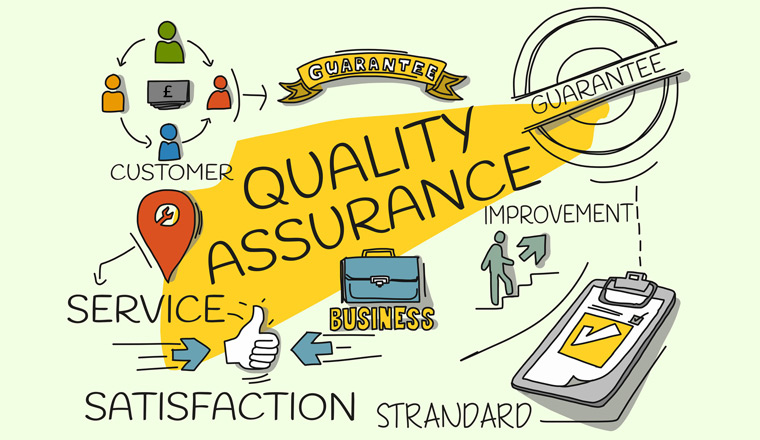Introduction
In today’s competitive business landscape, delivering products and services of impeccable quality is essential for success. Quality Assurance (QA) plays a crucial role in ensuring that businesses consistently meet and exceed customer expectations. In this article, we’ll delve into the importance of quality assurance, its benefits, and how it contributes to the overall success and reputation of businesses.

1. Understanding Quality Assurance
Quality Assurance is a systematic process that focuses on maintaining and improving the quality of products, services, and processes within an organization. It involves a set of activities, procedures, and standards designed to prevent defects and ensure consistent excellence.
2. The Importance of Quality Assurance
- Customer Satisfaction: High-quality products and services lead to satisfied customers who are more likely to become loyal and advocate for your brand.
- Brand Reputation: Consistently delivering quality builds a positive reputation and fosters trust among customers.
- Cost Savings: Addressing issues before they escalate saves time, money, and resources that would be required for rework or corrective actions.
3. Key Components of Quality Assurance
- Quality Control: This involves monitoring and inspecting products or services to ensure they meet predefined standards before reaching customers.
- Process Improvement: Continuously analyzing processes for inefficiencies and implementing improvements ensures consistency and optimal outcomes.
- Documentation: Maintaining detailed documentation of processes, standards, and outcomes facilitates consistent execution and knowledge sharing.
4. Benefits of Quality Assurance
- Reduced Defects: QA processes identify and rectify defects early, reducing the likelihood of faulty products or services reaching customers.
- Enhanced Customer Loyalty: Quality products and services lead to satisfied customers who are more likely to return and recommend your brand.
- Operational Efficiency: Streamlining processes and adhering to best practices leads to increased efficiency and reduced waste.
- Compliance and Risk Mitigation: QA ensures compliance with industry regulations and standards, reducing the risk of legal issues or penalties.
5. Implementing Quality Assurance
- Training: Provide regular training to employees to ensure they understand quality standards and procedures.
- Automated Testing: Use technology to automate testing processes for efficiency and accuracy.
- Feedback Loops: Encourage feedback from customers and employees to identify areas for improvement.
- Continuous Monitoring: Regularly assess and monitor processes, products, and services to maintain high standards.
6. Quality Assurance in Different Industries
Quality assurance is applicable across various industries, from manufacturing and healthcare to software development and hospitality. Each industry tailors QA processes to its unique requirements.
7. Conclusion
Quality Assurance is more than a process; it’s a commitment to excellence that defines a brand’s integrity and credibility. Businesses that prioritize QA not only deliver superior products and services but also foster customer loyalty, brand reputation, and operational efficiency. By embracing quality assurance as an integral part of their culture, businesses can ensure their sustained success and remain at the forefront of their respective industries.